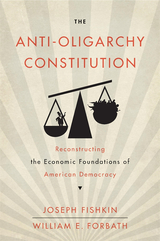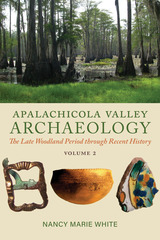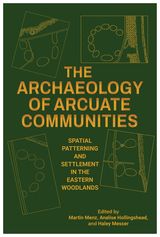179 scholarly books by Tupelo Press and 7
start with E
179 scholarly books by Tupelo Press and 7
179 scholarly books by Tupelo Press
7 start with E start with E
7 start with E start with E

The Earliest Witnesses
G.C. Waldrep
Tupelo Press, 2020
In the poems of The Earliest Witnesses, witnesses need a place to begin-they spiral off from a walk, a church, an orchard, to go into deeper meditation about faith, earth, restraint, desire, and violence. Waldrep’s seventh collection begins where his prior collection, feast gently, left off: “This / is how the witness ends: touch, withdraw; touch again,” according to the opening poem. The status of witnesses is never constant and never settled in this book: sometimes, witnesses “foster,” “touch,” and “stain” the places they inhabit; other times, they befriend, or document, or think. Sometimes, witnesses forget themselves-in questions of blame and responsibility-and sometimes they feel forgotten and unknown. If these are poems of witness, then they are also testators to the craft of seeing: “Can you see this,” the ophthalmologist in “A Mystic’s Guide to Arches” asks over and over again. Here, sight facilitates and impedes desire; it colludes with language itself. “She said, When you say pear, I see p-e-a-r for a second before I see, in my mind’s eye, a pear,” Waldrep carefully records in “[West Stow Orchard Poem (II)].” The desire-poems in The Earliest Witnesses want the thing itself, its image of the mind, and the language that transmutes both thing and image into song.
[more]

Engraved
Anna Meek
Tupelo Press, 2013
Inspired by nineteenth-century engravings for the Webster’s Dictionary, Engraved explores a fantastic land at the edge of obsolescence and loss. The poems teem with whaling schooners, passenger pigeons, a bayonet, cupola furnace, clavichord—words and objects at the brink of extinction, placed in and around the death of the poet’s father. But these poems also create, or recreate; through illustration, music, and myth, the imagination here allows the dead to reappear, mostly, and sometimes also lets them go. Located at the intersection of art and grief, these poems honor anyone who has set down lines and vanished from the earth.
[more]

Entwined
Three Lyric Sequences
Carol Frost
Tupelo Press, 2014
Carol Frost’s poems have a classical grace and elegance, but there is molten emotion beneath their fluid surfaces. The poetic sequences in Entwined give a reader three perspectives on human awareness: as a lexicon of abstractions (Time, Beauty, Adultery, Scorn, and so on) and what the poet calls “moral dreaming”; as a voyage from the soul’s dark night into a new experience of light among the bays and shoals of Florida’s fecund gulf coast; and as a meditation on memory and mortality, through an encounter with a mind in decline — a parent succumbing to dementia. Written over twenty-five years in three series, Carol Frost’s twelfth book of poems is formally elegant but fierce in feeling, boldly exploring lineation, an elastic syntax, and inventive punctuation to reach an extraordinary sensory intensity.
[more]

Epistle, Osprey
Geri Doran
Tupelo Press, 2019
In her third collection, Geri Doran continues to seek a quieter poem in a more natural form. Against the immediacy of troubled times, these poems retain a belief that long thought, solitude, restraint, and immersion in the world given to us (not made by us) are a means of passionate, even radical, devotion. And yet—what happens when a poet begins to doubt her singular reliance on poetry? When the only way to speak is in a language poised to evanesce? Modal, flexible, sonorous—the lines and tones of these meditative lyrics trace one route back.
[more]

Everything Broken Up Dances
James Byrne
Tupelo Press, 2015
James Byrne’s first book to be published in America navigates personal and socio-political worlds, journeying through Burma, Libya, and Syria along with documenting the poet’s years in New York City and subsequent return to England. This is a flexible poetry written “on the hoof,” nomadic and innovative, with imagery and language dexterously sparring. Byrne embraces Maurice Blanchot’s avowal that the fragmentary is permanent, “beyond fracturing, or bursting, the patience of pure impatience, the little by little suddenly.” With linguistic tenacity but by tremendously varied means, Byrne shows how “everything that is broken up dances.”
[more]

Exclusions
Noah Falck
Tupelo Press, 2020
What happens when a central part of life as we know it does not exist? Noah Falck’s latest collection answers this question in a playfully gloomy way that reveals the strange edges of our reality. Anyone who has experienced that rug-pulling sensation of change, of strangeness, will relate to Noah Falk’s Exclusions. Each lyric poem “excludes” a common subject, including topics such as fiction, modern technology, answers, government, and romance. By setting these subjects against a backdrop of obscurity and strangeness, Falck skillfully keeps readers invested and off-balance. Exclusions brings readers into a world where “the wind is nothing more than a brilliant collection of sighs” and “the sun flattens into a sort of messy bruise over the lake.” Even excluding many of the things we take for granted, Falck’s lyric poetry includes so much: death, smoke, shadows, sadness, history. This collection will leave readers with a changed perspective on what is necessary, and how to deal with immense change. A 2020 Believer Book Awards Finalist, Exclusions has been praised for its ability to “[keep readers] off balance, stumbling forward, and absolutely alive with both the inventive possibilities of lyric poetry and that rare experience of watching the genre redefine itself in a pair of this art’s most capable hands.” This is a genre-defining book of poetry that allows us to look into the past, present, and future to understand “the foundations of sadness beginning with the needs of children.”
[more]

Ex-Voto
Poems of Adélia Prado
Adélia Prado
Tupelo Press, 2013
“Adélia Prado’s most recent collection of poems, once more in Ellen Doré Watson’s superbly energetic and natural English, is nothing like any poetry I know in our present moment. Her humor, her dancing solidity, her joy in being alive — I think back to Chaucer, and the poems of Grace Paley. Prado is similarly voluble, playful, down to earth, and cheerful; and she seems to have an uncannily easy-going, even merry relationship with God and all his family. She has given us a perfectly crystalline ex-voto.”—Jean Valentine. Ex-Voto is the second collection of Prado’s poetry translated by Ellen Doré Watson. Their previous collaborative volume, The Alphabet in the Park: Selected Poems (Wesleyan University Press, 1990), was abundantly praised: “The life captured in Prado’s poems is convulsive: from a dark corner of despair she can rocket to pure joy in one line… This is poetry at its hottest and most naked…”—James Tate
[more]
READERS
Browse our collection.
PUBLISHERS
See BiblioVault's publisher services.
STUDENT SERVICES
Files for college accessibility offices.
UChicago Accessibility Resources
home | accessibility | search | about | contact us
BiblioVault ® 2001 - 2024
The University of Chicago Press









